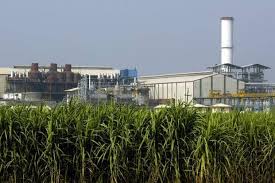Sugar cooperatives have long been central to the political landscape of Maharashtra, with influential figures like former Chief Ministers Vasantdada Patil, S B Chavan, Vilasrao Deshmukh, Ashok Chavan etc. all having strong ties to the cooperative sugar industry. Same was the case with most of the Ministers.
However these cooperative mills have continued to maintain their pivotal role in Maharashtra elections even now, especially in the ongoing Lok Sabha election 2024 and upcoming assembly elections in late 2024.
Recently, Union Home Minister Amit Shah raised questions about the closure of numerous cooperative sugar mills in Maharashtra, directing his scrutiny at Nationalist Congress Party (NCP) leader and hitherto the face of the sugar cooperatives in the state, Sharad Pawar. Speaking at a rally in Vita, Sangli, in support of BJP candidate Sanjay Kaka Patil, Shah highlighted the decline in the number of sugar mills during Pawar’s tenure as Minister of Agriculture. Shah also noted the reduction in district cooperative banks, questioning their management under Pawar’s leadership.
Shah further emphasized the Modi-led government’s efforts to support cooperative sugar mills, including a significant income tax waiver amounting to ₹15,000 crore and the allocation of substantial funds for irrigation projects in Sangli, which have been pending for an extended period.
Traditionally, the cooperative sugar sector in Maharashtra has leaned towards parties like Congress and NCP, but recent years have witnessed a notable shift towards BJP and its allies.
This transformation can be attributed to several factors. First, prominent sugar barons have aligned with the BJP and Mahayuti coalition. Notable figures like Radhakrishna Vikhe Patil, Harshavardhan Patil, and the family of Vijaysinh Mohite Patil have all joined BJP, although Vijaysinh Mohite Patil has returned to NCP under Sharad Pawar’s leadership.
Second, since its establishment in 2021 under Amit Shah, the Ministry of Cooperation has actively worked to revive and strengthen the cooperative sugar sector through various initiatives. These include tax relief for sugar cooperative mills, a Rs. 10,000 crore NCDC loan scheme, and preferential treatment for cooperative sugar mills in ethanol procurement.
Third, Harshvardhan Patil’s recent election as President of the National Federation of Cooperative Sugar Factories Ltd., representing sugar mills across the country with a majority from Maharashtra, underscores the growing influence of BJP-aligned leaders in the cooperative sugar sector.
Infact, in a latest development benefiting sugar distilleries, the government permitted the use of excess B-heavy molasses for ethanol production, alleviating financial challenges faced by cooperative sugar mills. Sugar mills were holding these excess stock of B-heavy molasses — a byproduct of the sweetener – since it was banned on December 7 last year.”This comforting decision will release around Rs 700 crore stuck in the remaining stocks of B-heavy molasses in the mills,” NFCSF President Harshvardhan Patil said in a statement.
As Maharashtra gears up for the 2024 elections, the dynamics of the sugar cooperatives and their political affiliations will continue to play a significant role, reflecting broader shifts within the state’s political landscape. However, the sector continues to maintain centre stage in Maharashtra politics.



